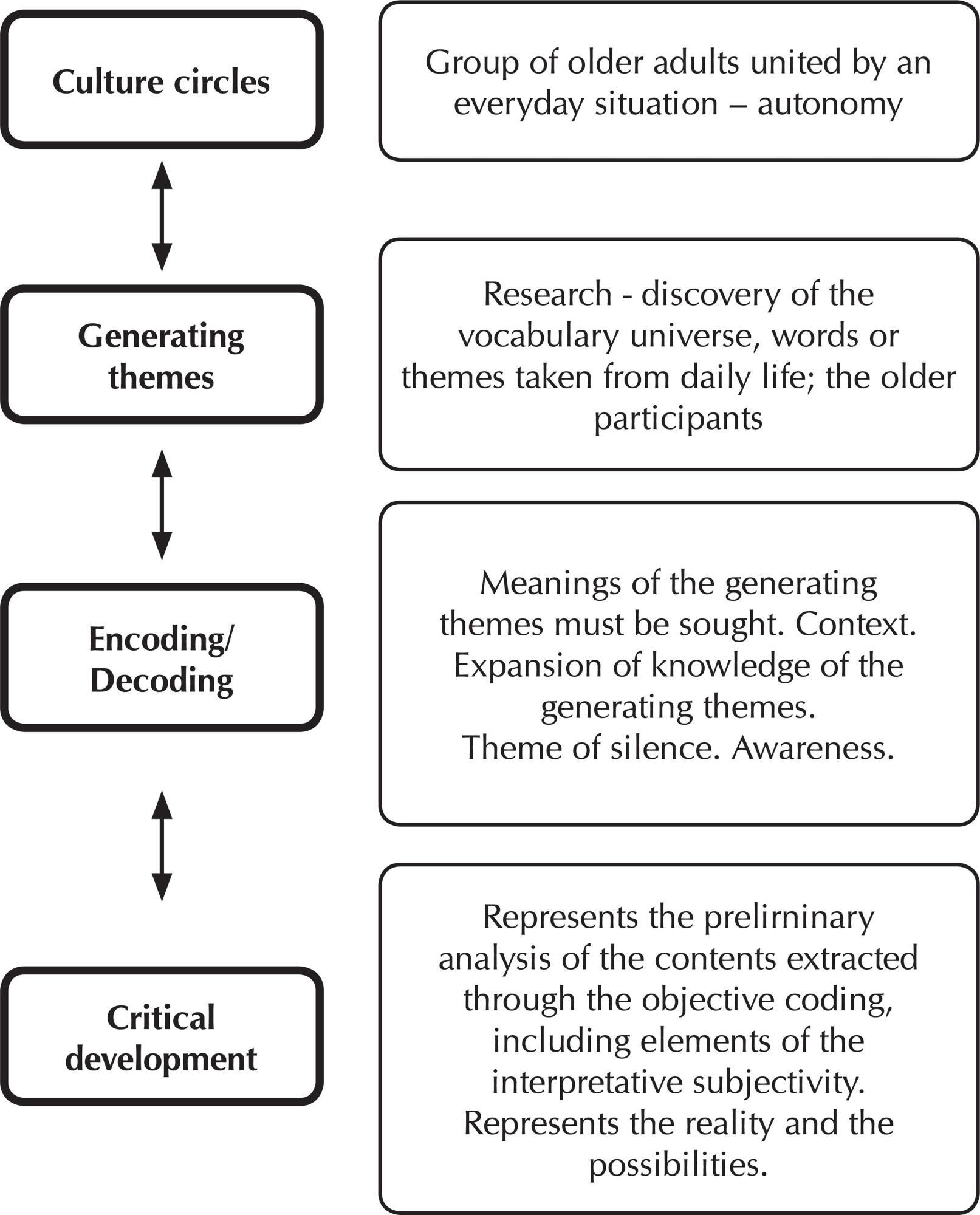-
RESEARCH
Promoting the autonomy of rural older adults in active aging
Revista Brasileira de Enfermagem. 2018;71(5):2411-2417
01-01-2018
Resumo
RESEARCHPromoting the autonomy of rural older adults in active aging
Revista Brasileira de Enfermagem. 2018;71(5):2411-2417
01-01-2018DOI 10.1590/0034-7167-2017-0570
Visualizações0ABSTRACT
Objective:
to understand how the rural older adults promote their autonomy in active aging.
Method:
qualitative research through the Paulo Freire's research itinerary, consisting of three steps: area of research; encoding and decoding; and critical unveiling. Seventeen older adults living in the rural area of a municipality in Southern Brazil participated in the research. Six culture circles were conducted from July to December 2016.
Results:
the investigation revealed two generating themes: joint pain and participation in groups. The understanding of autonomy promotion for the active aging of older adults is focused on the physical capacity and independence of activities of daily living.
Final considerations:
the culture circles have promoted reflection moments for the participants, especially about the advantages and difficulties related to the practice of autonomy in the exercise of citizenship for active aging in the rural area.
Palavras-chave: Health PromotionHealth Services for Older AdultsOlder AdultPersonal AutonomyRural PopulationVer mais
-
RESEARCH
Educational technology: a facilitating instrument for the elderly care
Revista Brasileira de Enfermagem. 2018;71(suppl 2):786-792
01-01-2018
Resumo
RESEARCHEducational technology: a facilitating instrument for the elderly care
Revista Brasileira de Enfermagem. 2018;71(suppl 2):786-792
01-01-2018DOI 10.1590/0034-7167-2017-0129
Visualizações0ABSTRACT
Objective:
To develop educational technology with caregivers of older people based on the needs, difficulties and concerns related to the elderly care expressed by the caregivers themselves.
Method:
Research of qualitative nature, with participant observation, based on concepts used by Paulo Freire. Data collection and analysis used the “World Cafe” methodology and the thematic content analysis, respectively.
Result:
The needs of these caregivers refer to their training and information on aging. The difficulties highlighted are deterrents to quality assistance to older adults, such as: insufficient resources, environmental factor and relationship with the family. The interests are evident in relation to the care and to its more subjective relationship.
Final considerations:
Educational technologies, printed matter and media, developed along with the caregivers, contribute to orientation and information of caregiver, population and professionals as facilitating instruments, regarding elderly care.
Palavras-chave: CaregiversEducational TechnologyHealth EducationHealth of Older AdultsHealth Services for Older AdultsVer mais



